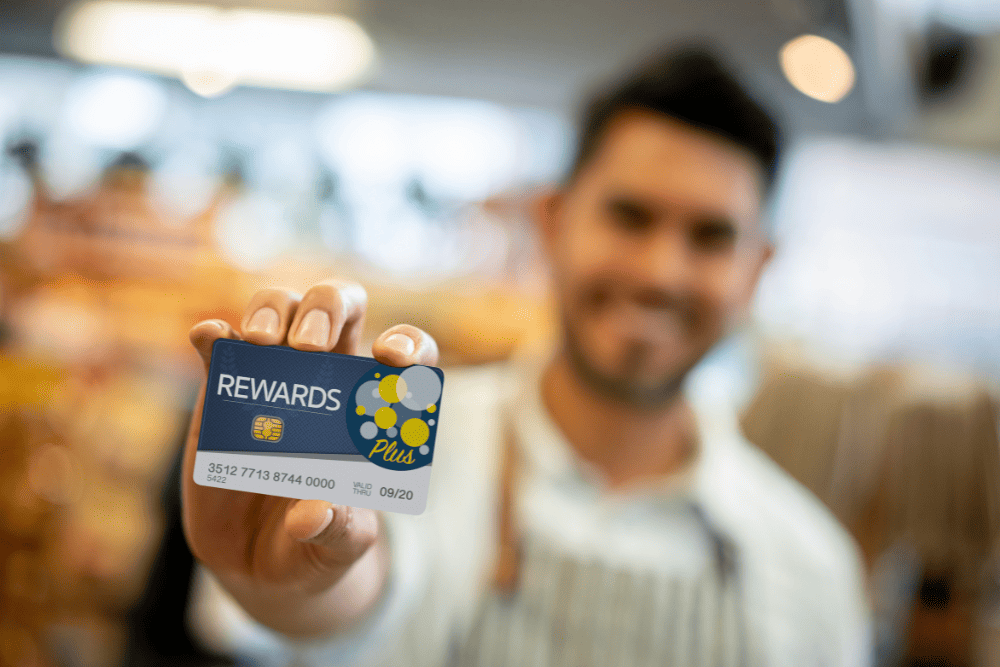In the bustling world of small businesses, where every customer counts and competition is fierce, mastering the art of customer retention is more than a strategy – it’s a lifeline. The journey toward turning first-time buyers into loyal customers is nuanced and requires a blend of personalized attention, quality service, and leveraging modern technology. Building and maintaining strong relationships with customers involves understanding their needs and preferences and delivering exceptional service that goes above and beyond their expectations. This can include personalized communication, special offers, and thoughtful gestures that show customers they are valued. It also means being proactive in addressing any issues or concerns they may have and striving to exceed their expectations at every touchpoint.
In the digital age, leveraging modern technology is crucial for customer retention. This can involve using customer relationship management (CRM) software to track and analyze customer interactions and to provide insights into their behavior and preferences. It also means utilizing social media, email marketing, and other digital platforms to stay engaged with customers and provide them with relevant and timely information and offers.
Ultimately, customer retention is about building trust and loyalty. It’s about creating an emotional connection with customers so that they not only continue to do business with you but also become advocates for your brand. This requires consistency, transparency, and authenticity in all your interactions, as well as a willingness to adapt and evolve based on customer feedback and changing market trends.
By mastering the art of customer retention, small businesses can create a loyal customer base that provides a steady stream of revenue and helps them withstand the ups and downs of the market. It’s an investment that pays off in the long run and one that can set a small business apart in a crowded marketplace.
Key Takeaways:
- Tailor experiences to individual customer needs for a personalized touch.
- Offer exceptional customer service to build trust and reliability.
- Ensure consistent quality in your products or services.
- Foster a community around your brand to enhance customer loyalty.
- Implement loyalty programs to encourage repeat business.
- Utilize technology, like CRM systems, for better customer management.
- Engage customers through automated marketing and communication tools.
- Gather and act on customer feedback for continuous improvement.
Personalized Customer Experience
In today’s competitive market, creating a personalized customer experience has become crucial for businesses to not only attract new customers but also to retain them. By providing tailored product recommendations, customized solutions, and individualized communication, businesses can enhance their new customer acquisition while also improving customer retention rates.
Personalized customer support plays a significant role in strengthening brand loyalty and increasing the repeat customer rate. When a new customer feels valued and understood by a brand, they are more likely to return for future purchases and recommend the brand to others. This personalized experience also helps in creating a strong emotional connection with the customers, leading to long-term relationships and increased customer satisfaction.
With the help of advanced data analytics and customer relationship management systems, businesses can gather and utilize customer data to understand their needs and preferences better, and then deliver personalized experiences across various touchpoints. Whether it is through email marketing, targeted advertisements, or personalized product recommendations on the website, businesses have the ability to create a seamless and personalized customer journey that ultimately leads to improved customer satisfaction and loyalty.
Investing in personalized customer experience not only benefits the customers but also helps businesses achieve higher customer retention rates, increasing brand loyalty, and boosting the repeat customer rate.
Creating a personalized experience is like crafting a unique story for each customer, where they are the protagonists, and your business plays a crucial supporting role. Here’s how to make each interaction count:
- Understanding Individual Needs: Dive deep into understanding what your customers are looking for. This could mean conducting surveys, analyzing purchase history, or simply having a conversation to gain insights into their preferences.
- Customization: Utilize this information to customize your offerings. If you’re a café owner, remember how your regulars like their coffee. For online businesses, recommend products based on browsing history.
- Personal Touch: Small gestures like addressing customers by their names in emails or remembering their last purchase can create a memorable impact.
Exceptional Customer Service
Exceptional customer service is crucial for any business to thrive in today’s competitive market. Providing excellent customer service can help to reduce customer churn, increase the number of customers, and boost customer retention. It is essential for businesses to consistently deliver top-notch service to ensure customer satisfaction and loyalty. This can be achieved through various means such as regular customer satisfaction surveys to gauge the level of satisfaction and identify areas for improvement.
Additionally, investing in well-trained and knowledgeable customer service teams is also imperative as they are the frontline of the company’s interactions with its customers. By providing exceptional customer service, businesses can create a positive experience for their customers, build trust, and ultimately, increase customer loyalty. This can lead to an increase in repeat business and referrals, which are key indicators of a successful customer service strategy.
Companies that prioritize exceptional customer service are more likely to stand out from their competitors and create a strong brand reputation. In today’s digital age, word-of-mouth and online reviews can greatly impact a company’s success, making it even more important for businesses to prioritize customer satisfaction. Ultimately, exceptional customer service is not just about resolving issues and responding to queries but is also about creating meaningful and lasting relationships with customers. It can have a direct impact on a company’s bottom line and long-term success.
Customer service is the heartbeat of customer retention. It’s not just about solving problems but creating an environment where customers feel valued and understood.
- Training Staff: Equip your team with the skills to handle inquiries empathetically and efficiently. Every interaction should make the customer feel heard and cared for.
- Quick Response Time: In our fast-paced world, time is of the essence. Ensure your customer service is swift, be it in responding to emails, calls, or social media inquiries.
- Go the Extra Mile: Sometimes, it’s the unexpected gestures that leave a lasting impression. Whether it’s a small freebie or a handwritten note, these details can turn a regular customer into a loyal one.
Quality and Consistency
Quality and consistency are crucial for improving customer retention programs and ensuring customer success. By delivering high-quality products or services consistently, businesses can build trust and loyalty with their customers, ultimately leading to an increase in retention rates. Consistency also plays a key role in maintaining customer satisfaction, as it helps in meeting and exceeding customer expectations on a regular basis.
Furthermore, providing quality and consistent experiences to customers can also contribute to positive word-of-mouth and referrals, which can, in turn, help grow your customer base. When it comes to the key customer, the significance of quality and consistency is even more pronounced. Key customers are often the biggest revenue drivers for businesses, and losing them can have a significant impact on the bottom line.
Therefore, it is imperative to ensure that they receive a consistent and high-quality experience, as their satisfaction and loyalty can directly impact business success. Similarly, for retaining customers for longer, a customer-centric approach focused on quality and consistency is essential. By consistently meeting and exceeding their expectations, businesses can keep their customers satisfied and engaged, leading to longer customer lifespans. In conclusion, quality and consistency are indispensable elements in driving successful customer retention and in turn, contributing to the growth and success of a business.
The foundation of customer retention is the quality and consistency of your products or services. This is what builds trust and keeps customers coming back.
- High-Quality Standards: Never compromise on quality. Ensure your products or services meet a high standard every single time.
- Consistency is Key: Regularity in your offerings reassures customers that they can expect the same great experience every time they engage with your business.
Gamification: A Powerful Tool for Engagement and Loyalty
Looking to take your customer retention to the next level? Consider gamification. Incorporating game-like elements into your customer journey—such as rewards, points, progress bars, and challenges—can significantly boost engagement and repeat purchases. It turns everyday interactions into fun, rewarding experiences that keep customers coming back.
For inspiration, check out these Top 10 Examples: eCommerce Gamification that are revolutionizing how online brands captivate their audience. You might find strategies you can adapt for your own small business.
Building a Community Around Your Brand
Creating a sense of community can transform customers into brand advocates.
- Social Media Engagement: Utilize platforms like Instagram or Facebook to connect with your customers. Share behind-the-scenes content, celebrate milestones, and engage in conversations.
- Events and Workshops: Hosting events or workshops related to your business can bring your community together and create a sense of belonging.
Implementing a Loyalty Program
Loyalty programs incentivize repeat business and can turn a one-time purchaser into a lifelong customer.
- Points System: Implement a system where customers earn points with every purchase, which they can redeem for discounts, freebies, or special services.
- Tiered Rewards: Create tiers in your loyalty program, encouraging customers to reach higher levels for better rewards.
Leveraging Technology for Customer Retention
Embracing technology can streamline your customer retention efforts and offer insights into customer behaviors.
- Using CRM Systems for Better Customer Management: A Customer Relationship Management (CRM) system is a powerful tool in understanding and managing your customer interactions. It helps in tracking purchase history, communication preferences, and feedback, allowing you to tailor your approach to each customer.
- Automated Marketing and Communication Tools: Automation can take your marketing efforts to the next level. Tools like email marketing software allow you to send targeted messages, keeping your customers engaged and informed about your latest offerings or promotions.
- Personalized Communication: Use these tools to send personalized messages on birthdays, anniversaries, or special occasions, making your customers feel special and valued.
- Data Analysis for Better Understanding: Regular analysis of the data collected through these technologies can provide valuable insights into customer preferences and behavior, helping you make informed decisions about your business strategies.
By adopting these strategies, small businesses can create a robust framework for customer retention. It’s about building relationships, understanding needs, and consistently delivering value. Remember, a satisfied customer is not just a repeat buyer; they are your best advocate in an ever-competitive market.
Feedback and Continuous Improvement
Encouraging Customer Feedback
- Open Channels for Feedback: Make it easy for customers to provide feedback. Be it through surveys, feedback forms on your website, or a simple invitation at the end of an email, ensure customers know their opinions are valued.
- Active Listening: When customers share feedback, listen actively. It’s not just about collecting data but understanding the sentiments behind it.
- Responsive Action: Show your customers that their feedback leads to action. Whether it’s tweaking a service, adjusting a product, or simply acknowledging their input, responsiveness is key.
Continuous Improvement Based on Customer Insights
- Analyze Feedback for Trends: Look for patterns in the feedback. Are there recurring issues or highly praised aspects? This data is invaluable for guiding your business strategies.
- Implement Changes: Use the insights from customer feedback to make informed changes in your business. This could range from small adjustments to significant pivots in your approach.
- Communicate Changes to Customers: When you make changes based on feedback, let your customers know. It demonstrates that you value their input and are committed to improving their experience.
Measuring Customer Retention Success
Key Metrics to Track Customer Retention
- Customer Lifetime Value (CLV): Calculate the total value a customer brings over their relationship with your business. A rising CLV indicates successful retention strategies.
- Repeat Purchase Rate: Track how often customers return to make another purchase. Higher rates signify effective retention.
- Churn Rate: This is the percentage of customers who stop doing business with you over a certain period. A lower churn rate is the goal.
Regular Assessment and Adaptation
- Regular Monitoring: Keep a close eye on these metrics. Regular monitoring helps in identifying trends and making timely adjustments.
- Adaptation: Be prepared to adapt your strategies based on what the data tells you. The market and customer preferences can change, and so should your approach.
Conclusion
In conclusion, successful customer retention for small businesses hinges on a deep understanding of customer needs, consistent quality, effective communication, and a willingness to adapt based on customer feedback. By integrating these strategies into your business model, you not only enhance customer loyalty but also set the stage for sustainable growth and increased sales.
Boost Your Business Growth with Innovative Flare: Your Partner in Customer Retention Success
Ready to transform your small business with strategies that not only retain customers but also boost your sales? Partner with Innovative Flare today, and let’s embark on a journey to elevate your business to new heights. Our expertise in customer retention strategies and digital marketing will help you build a loyal customer base and grow your business in ways you’ve never imagined. Contact us now and take the first step towards a thriving future!
Expert Answers to Your Top Questions on Customer Retention Strategies for Small Businesses
Q1: What is customer retention, and why is it important?
Customer retention is the ability of a business to retain its customers over time. It’s crucial because retaining existing customers is more cost-effective than acquiring new ones, and loyal customers often spend more and can become brand advocates.
Q2: How can small businesses personalize customer experiences?
Small businesses can personalize experiences by understanding individual customer needs, customizing services or products accordingly, and adding personal touches like addressing customers by their names or remembering their preferences.
Q3: What role does customer service play in customer retention?
Exceptional customer service is vital in customer retention as it builds trust and reliability, making customers feel valued and understood, thereby increasing the likelihood of repeat business.
Q4: Why are quality and consistency important in products or services?
Quality and consistency are the foundations of customer trust. Customers are more likely to return if they know they can consistently expect high-quality products or services.
Q5: How can businesses build a community around their brand?
Businesses can build a community by engaging with customers on social media, hosting events or workshops, and creating a sense of belonging around the brand.
Q6: What are some effective types of loyalty programs?
Effective loyalty programs include points systems where customers earn points with each purchase and tiered rewards that offer greater benefits as customers reach higher levels.
Q7: How does technology enhance customer retention?
Technology, like CRM systems and automated marketing tools, helps in better customer management, and personalized communication, and provides valuable insights into customer behavior.
Q8: Why is customer feedback important?
Customer feedback is crucial as it provides direct insights into customer satisfaction and areas for improvement. Actively listening and responding to feedback shows customers their opinions are valued.
Q9: What metrics should businesses track to measure customer retention?
Businesses should track metrics such as Customer Lifetime Value (CLV), Repeat Purchase Rate, and Churn Rate to gauge the effectiveness of their customer retention strategies.
Q10: How often should a business adapt its customer retention strategies?
Businesses should regularly assess their customer retention strategies and be prepared to adapt them in response to changing market conditions, customer feedback, and performance metrics.
 seolounge
seolounge




